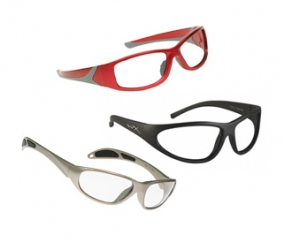How are you protecting your medical staff’s eyes from radiation exposure?
Hopefully your answer is lead glasses. Lead eyeglasses (also known as radiation safety glasses) will block harmful radiation from entering the eyes. The eye is a sensitive and complex organ that requires careful attention and protection.
There are many safety precautions one must take in order to stay fully protected when working around radiation. Both direct and scattered radiation can cause harm to an individual’s eyes, so it is crucial that all medical facilities enforce radiation protection regulations among staff.Radiation exposure can occur in many areas of a medical facility including – diagnostic, cardiac, interventional procedures, x-ray imaging, etc. This means that all physicians, nurses, dentists and radiology technicians must understand the importance of wearing lead glasses throughout procedures that emit radiation. In order to track the amount of radiation exposure your staff endures, radiation badges are to be used at all times when working with radiation. Radiation safety officers (RSO) review information from dosimeters to ensure the individual is under the regulatory dose limits. ALARA (As-Low-As-Reasonably-Achievable) is a radiation measure for minimizing radiation exposure that all medical facilities should follow. Three basic safety measures to follow when working around radiation:
- Time: Minimize the amount of radiation exposure time.
- Shield: Use protective gear, such as radiation glasses to protect sensitive organs.
- Distance: Keep as far away as possible from the source of radiation.
Lead glasses are to be worn during all procedures and research that contain radiation. It is important to wear high-quality lead glasses to ensure full eye protection. The medical industry standards for lead equivalency in lead glasses are 0.75 mm. Lead glasses are available in a multitude of frame styles to fit the needs of your entire medical staff. Glass does not normally provide radiation protection. Lead glass is thicker and nearly three times denser than regular glass, giving lead glass the ability to block harmful radiation. We recommend consulting with your radiation safety officer for more local standards and information for your facility. Remember, whether your staff is working around radiation every day or once a month, it is crucial to keep their eyes protected from harmful radiation exposure! If you have any questions or comments for keeping staff members safe against radiation, please let us know below.

Leave a Reply